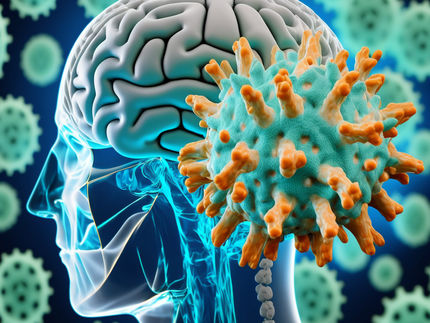Antidepressant medication protects against compounds linked to dementia
In Addition to treating depression, a commonly used antidepressant medication also protects against compounds that can cause memory loss and dementia, a Loyola University Medical Center study has found.
The study found that blood levels of two neurotoxic compounds dropped significantly in depressed patients after they were treated with the antidepressant escitalopram (Lexapro®).
Stress and depression interact in a vicious cycle. Stress can lead to depression in susceptible individuals. In turn, depression, if not treated, causes stress. This stimulates the body's immune system to fight stress and depression, as it would a disease or infection. Revving up the immune system, which includes the inflammatory response, initially protects against stress. But over time, chronic inflammation can cause a range of health problems.
In this vicious cycle, depression can trigger an inflammatory response, which in turn can exacerbate depression, said Angelos Halaris, MD, PhD, lead author of the study and a professor in the Department of Psychiatry and Behavioral Neurosciences of Loyola University Chicago Stritch School of Medicine.
"It behooves us to diagnose depression early, treat it vigorously to achieve remission and work to prevent its relapse," Dr. Halaris said.
The study compared 30 severely depressed patients with 27 healthy subjects. The patients were treated with escitalopram and followed for 12 weeks. Some patients dropped out of the study due to side effects of escitalopram or other reasons. Of the 20 patients who completed the entire study, 80 percent reported complete or partial relief from their depression.
To examine the inflammatory response, researchers measured blood levels of nine substances secreted by the immune system. At the beginning of the study, average levels of all nine of these substances were higher in the depressed patients than in the healthy subjects. The differences were statistically significant with four of these substances (hsCRP, TNFα, IL6 and MCP1).
The inflammatory response can lead to the production of neurotoxic compounds that can kill brain cells, leading to memory loss and dementia if the depression goes untreated or fails to respond adequately to treatment. The study found that among patients treated with escitalopram, levels of two neurotoxic compounds dropped significantly. Levels of 3-hydroxykynurenine fell by more than two-thirds between week 8 and week 12. Levels of quinolinic acid dropped 50 percent during the first eight weeks and were lower at the end of the study than at the beginning.
Escitalopram belongs to a class of antidepressants called selective serotonin reuptake inhibitors (SSRIs). It's possible that other SSRIs, such as Prozac®, Paxil® and Zoloft®, also could protect against neurotoxins, but this would have to be confirmed with other studies, Dr. Halaris said.
The study is limited by the small number of subjects. But it should stimulate interest in replicating the findings with larger groups over a longer period of time, researchers wrote.
Original publication
Most read news
Other news from the department science

Get the life science industry in your inbox
By submitting this form you agree that LUMITOS AG will send you the newsletter(s) selected above by email. Your data will not be passed on to third parties. Your data will be stored and processed in accordance with our data protection regulations. LUMITOS may contact you by email for the purpose of advertising or market and opinion surveys. You can revoke your consent at any time without giving reasons to LUMITOS AG, Ernst-Augustin-Str. 2, 12489 Berlin, Germany or by e-mail at revoke@lumitos.com with effect for the future. In addition, each email contains a link to unsubscribe from the corresponding newsletter.























































